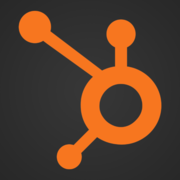Marketing Automation Software
Marketing Automation Software Overview
Top Rated Marketing Automation Products

These products won a Top Rated award for having excellent customer satisfaction ratings. The list is based purely on reviews; there is no paid placement, and analyst opinions do not influence the rankings. Read more about the Top Rated criteria.
Marketing Automation Software TrustMap
TrustMaps are two-dimensional charts that compare products based on trScore and research frequency by prospective buyers. Products must have 10 or more ratings to appear on this TrustMap.
Marketing Automation Products
(1-25 of 168) Sorted by Most Reviews

Adobe Marketo Engage
Adobe Marketo Engage (acquired by Adobe in 2018) is a marketing automation platform whose basic features include email marketing, drip nurturing, landing pages, and lead scoring, but other editions offer additional advanced features. Typical customers are B2B firms with complex sales…
Key Features
- List management (838)85%8.5
- Lead nurturing (823)85%8.5
- Email deliverability reporting (1451)83%8.3

HubSpot's Marketing Hub is an all-in-one inbound marketing engine that includes tools for email marketing, landing page creation, social media marketing, content management, reporting & analytics, search engine optimization (SEO), and more.
Key Features
- Email deliverability reporting (696)93%9.3
- List management (361)91%9.1
- Dashboards (363)88%8.8

ActiveCampaign integrates email marketing, marketing automation, sales automation, and CRM software into one platform designed for small businesses.
Key Features
- Email deliverability reporting (608)92%9.2
- List management (582)89%8.9
- Dashboards (530)88%8.8

SharpSpring, a Constant Contact company, is a revenue growth marketing platform that helps small businesses generate leads, improve conversions to sales, and drive higher returns on marketing investment. The platform, open architecture and customer support, along with flexible contracts,…

MailChimp is an SMB-oriented email platform. A free account is offered with a 500 subscriber limit and with a limit of 3000 sends. There are various pricing models above 500 subscribers.
Key Features
- Email deliverability reporting (601)86%8.6
- List management (384)82%8.2
- Standard reports (379)82%8.2

Oracle CX Marketing (formerly Oracle Marketing Cloud) is a solution designed to enable marketers to plan and execute automated marketing campaigns via email, display search, video advertising, and mobile while delivering a personalized customer experience for their prospects.
Key Features
- Landing pages (127)85%8.5
- List management (130)85%8.5
- Email deliverability reporting (240)85%8.5

Act-On is an adaptive marketing platform designed to drive personal and purposeful multi-channel marketing. Its foci are inbound and outbound marketing, for enabling a tighter alignment with sales and turning data into actionable insights.
Key Features
- WYSIWYG email editor (111)99%9.9
- Email deliverability reporting (219)90%9.0
- Standard reports (111)90%9.0

Keap is a small business-focused, comprehensive sales and marketing platform which combines basic contact management, CRM, marketing automation, and e-commerce capabilities into a single, subscription-based SaaS product.
Key Features
- List management (115)87%8.7
- Lead nurturing (114)85%8.5
- Email deliverability reporting (164)83%8.3

Pardot is a marketing automation platform. Its key features include lead management, lead generation, social selling, and email marketing.
Key Features
- List management (90)84%8.4
- Email deliverability reporting (177)80%8.0
- Standard reports (88)68%6.8

Constant Contact is a full-featured email marketing solution with capabilities such as social media integration, drag-and-drop editing, and real-time reporting. It is a bulk email tool designed for SMB customers. Since 2019, Constant Contact also offers marketing automation features,…
Key Features
- Email deliverability reporting (135)86%8.6
- List management (90)83%8.3
- Dashboards (87)78%7.8

Adobe Campaign
Adobe acquired Neolane in July 2013 and later re-named the product Adobe Campaign. Adobe Campaign provides both marketing automation and marketing resource management functionality such as spend & financial management, workflow, and asset management.
Key Features
- Email deliverability reporting (135)90%9.0
- Dynamic content (84)90%9.0
- List management (84)85%8.5

Bloomreach Commerce Experience Cloud
Bloomreach is a Commerce Experience Cloud, empowering brands to deliver customer journeys so personalized, they feel like magic. It offers a suite of products that aim to drive true personalization and digital commerce growth, including: Discovery, offering AI-driven search and…

Klaviyo
Klaviyo is a growth marketing platform that helps deliver more personalized experiences across owned marketing channels like email, SMS, in-app notifications, and web. The vendor states brands have made more than $3.7 billion in revenue through Klaviyo in the last year alone. Klaviyo…
Key Features
- List management (55)85%8.5
- Email deliverability reporting (69)84%8.4
- Mobile optimization (53)80%8.0

Twilio SendGrid Marketing Campaigns provides users with segmentation, campaign editing, and deliverability. According to the vendor, Twilio SendGrid Marketing Campaigns is trusted by over 80,000 customers globally, including Airbnb, Spotify and Uber. Twilio SendGrid Marketing Campaigns…
Key Features
- Email deliverability reporting (75)82%8.2
- Standard reports (40)76%7.6
- Dashboards (40)67%6.7

LeadSquared is a marketing automation and CRM platform. It includes landing pages, email marketing, lead management, analytics, connectors, and WordPress Plugins.
Key Features
- Dashboards (39)100%10.0
- Lead scoring and grading (39)89%8.9
- Email deliverability reporting (75)69%6.9

Acoustic Campaign (formerly IBM Watson Campaign Automation) is a scalable, SaaS-based, cross-channel, digital marketing platform providing digital marketers the ability to implement and manage email, mobile, social, and lead management campaign processes.
Key Features
- Email deliverability reporting (20)80%8.0
- A/B testing (10)70%7.0
- WYSIWYG email editor (10)40%4.0

AWeber is an email marketing and automation solution. It provides support for mobile-friendly HTML email newsletters, autoresponder campaigns, subscriber segmentation and management, RSS-to-email features, signup forms for websites or blogs, and more.
Key Features
- List management (29)97%9.7
- Email deliverability reporting (56)88%8.8
- Standard reports (29)35%3.5

Hatchbuck is an all-in-one sales and marketing software that includes CRM, marketing automation, and email marketing tools. Users can build online forms, manage and segment contacts, engage prospects with relevant follow-up, manage tasks, and track their pipeline.
Key Features
- Email deliverability reporting (55)46%4.6
- List management (29)45%4.5
- Lead nurturing (29)34%3.4

Net-Results is a marketing automation solution that features segment-driven approaches to lead management and marketing automation. Some key features include support for A/B email testing, drag & drop landing pages, CRM integrations, and automated marketing workflows.
Key Features
- Email deliverability reporting (46)80%8.0
- List management (22)70%7.0
- Mobile optimization (22)50%5.0

Zoho Campaigns is an email marketing and social networking campaigning tool for smaller companies that helps create, send, and track effective email campaigns. It features list management and segmentation, A/B Testing, tracking and reporting, automation, and mobile campaign management.…
Key Features
- Email deliverability reporting (36)78%7.8
- Standard reports (25)75%7.5
- Dynamic content (25)67%6.7

eTrigue DemandCenter is a marketing automation and channel marketing-as-a-service platform. Its key features include CRM integration, email marketing, real-time lead alerts, A/B email testing, and litmus email visualization testing.
Key Features
- Dashboards (16)70%7.0
- Standard reports (16)60%6.0
- Email deliverability reporting (32)40%4.0

GetResponse is an online marketing platform optimized for use by small businesses. It provides tools which support email marketing, autofunnel, landing pages, marketing automation, webinars, autoresponders, and enterprise marketing needs.
Key Features
- Email deliverability reporting (43)91%9.1
- Dashboards (22)86%8.6
- Mobile optimization (22)84%8.4

GreenRope is a CRM tool focused on marketing automation, sales pipelines, and customer service. It includes advanced marketing automation capabilities, sales force automation, and a tool box of features to help manage and operate the business.
Key Features
- Customer data management / contact management (13)96%9.6
- Email marketing (13)96%9.6
- Task management (13)96%9.6

7Sheep is a marketing automation tool that concentrates on delivering features for what they consider 7 key components of marketing automation software: contact storage, form building, automation triggers, e-mail and text message campaigns, prospect tracking, integration and translation…
Key Features
- Email deliverability reporting (42)84%8.4
- WYSIWYG email editor (21)83%8.3
- List management (21)79%7.9

SALESmanago CDP & Marketing Automation
SALESmanago is a no-code, AI-driven Customer Data and Marketing Automation Platform boasting users among 3000+ midmarket and large Enterprises in 50 countries including Starbucks, Vodafone, BMW, Crocs, Victoria's Secret and other global brands.SALESmanago harnesses first- and zero-…
Key Features
- Email deliverability reporting (25)95%9.5
- Dashboards (22)91%9.1
- WYSIWYG email editor (22)91%9.1
Learn More About Marketing Automation Software
What is Marketing Automation?
Marketing automation is the process of automating and scaling repetitive marketing tasks. Businesses rely on marketing automation software, or email marketing software, to help them do this. Marketing automation platforms also enable companies to analyze the success of their marketing efforts.
Most marketing automation systems are built around leads (people) and campaigns (message sequences). Leads in the marketing database can be nurtured with relevant, personalized content.
Marketing automation campaigns are more complex than batch and blast email campaigns. Campaigns can involve digital channels beyond email, such as social media, SMS, landing pages, etc. They can also be designed with complex logic. This is the automation piece. Users can segment leads, personalize messages, and trigger events (like sending an email or updating a record) based on lead behavior. Once a campaign is over, reporting tools can measure its performance. This tells marketers what worked well and what did not.
Some marketing automation platforms are better suited for large businesses, and others for small businesses. Some focus on B2C marketing, some on B2B marketing, others on both. Most offer inbound and outbound marketing tools, though some have stronger features around one strategy (i.e. HubSpot is an inbound marketing tool). You should assess your use case and the marketing challenges you have before evaluating products.
For a more in-depth look at trends in the space, check out our Buyer's Guide to Marketing Automation Software. It includes review insights and tips from marketing automation experts.
Marketing Automation Features
Marketing automation started out with just email. Today, other digital channels like websites, mobile apps, SMS, and social media are all integral to successful marketing efforts. Most marketing automation tools will include functionality for all of these channels.
The core set of marketing automation capabilities include:
- Email marketing
- Landing page creation and customization
- Lead management
- Lead scoring
- Reporting & Analytics
Features vary from vendor to vendor, as well as by paid tier. No matter the level, marketing automation features can be grouped as follows:
- Email Marketing & Online Marketing
- Lead Management
- Reporting & Analytics
- Social Marketing
Email Marketing & Online Marketing
- Email Management: Automation for opt-in, unsubscribe, and bounce processing. This sometimes includes a dedicated IP address and link validation.
- Landing Pages: Direct clicks to a unique, relevant page. The ability to customize pages helps control the customer experience and is well-known to increase conversion rates.
- Triggered Email: Send real-time, personalized emails based on customer actions.
- Forms: Registration forms to capture lead data and add it to the database. May allow for social sign-in. This sometimes includes “smart” forms that recognize known visitors and ask progressive questions to update their records in the database.
- Dynamic Content: Landing pages and emails can be automatically customized. This compartmentalization can be based on industry, location, job title, or other segmentation factors.
- Mobile: Mobile-optimized features are common in most marketing automation platforms today.
Lead Management Features
- Lead Database: Archive actions between your company and individual prospects. Email clicks, website visits, scoring changes can all be automatically logged.
- Behavior Tracking: Indicates a prospect’s interests and place in the buying process. May include the websites they visit, social networks they participate in, keywords they search with, emails they open, etc.
- Lead Nurturing: Emails can be triggered based on a predetermined campaign, and in a sequence that aligns with the customer's journey to a potential customer more information as you go along. More important for B2B marketing.
- Automated Sales Tasks: Automatically send follow-up messages based on specific behavior, create lists of qualified leads for sales, and alert salespeople of new action.
- Segmentation: Demographic and behavior-based filters refine the outreach process.
- Workflow Automation: Planning, calendar creation, and task assignment can all be automated.
- Scheduling Flexibility: Control when your messages will be sent by day and time, and whether they should be spread out throughout the day. Gate and prioritize messages, or schedule messages to send based on the time zone of the recipient
- Lead Scoring: Identify the best lead for a campaign or tactic. You can weigh important and undesirable behaviors automatically.
- Data Quality: Merge duplicate leads, identify missing information, and standardize information.
Reporting & Analytics Features
- Basic Reporting: A summary of email and landing page campaign success. This is typically featured on a built-in dashboard.
- Program ROI Analytics: Give visibility into your marketing efforts’ ROI. It’s a bigger picture approach, comparing the success of campaigns and channels.
- SEO & Keyword Tracking: Track keyword strength and compare competitor performance.
- Multi-touch Revenue Attribution: Credit every campaign touchpoint before the sale. This gives better visibility to the performance of each campaign tactic.
- Testing: Some platforms allow A/B testing or multivariate testing for automated campaigns. Material to test may include subject lines, send times, or even personalized content and custom landing pages.
- Web Analytics: Determine which pages of your website are most popular with prospects. Look at the bounce rate, common paths, and more.
- Predictive Analytics: Use data trends to optimize future marketing operations. This is a developing area for marketing automation analytics.
Social Marketing Features
- Social Campaigns: Cross-sell content with automated posts across channels. Qualify prospects using comments, replies, and tweets.
- Social Listening: Monitor brand mentions across the social sphere. Gain insight into prospect segmentation and campaign messaging.
- Social Sharing: Incorporate smart share buttons into campaign messages. Gain data about who shares content which content and what drives social conversations.
- Social Engagement: Increase engagement with polls or referral programs. Some tools allow integration of engagement apps to your Facebook, email, and website.
- Social Analytics: Add tracking to social media campaigns, and improve your conversion rates for future campaigns.
Some more advanced features (i.e. for enterprise-level platforms) include:
- CRM integration
- Social media marketing and management
- Web conferencing
- Dynamic website / Progressive profiling
- Marketing Resource Management (MRM)
- Cross-channel campaign management
- Predictive analytics
List Size & Target Market
Different marketing automation software fits different use cases. In particular, think about the size of your contact database and industry.
Scale
The technology you need will vary depending on the size of your company, your marketing team, and your database (list size).
Marketing automation platforms for small businesses go beyond pure-play email marketing. Typically they try to provide an all-in-one system that is easy to use and within budget. They will also feature CRM tools, social tools, etc., but they won’t have all of the bells and whistles enterprise platforms do. Complex logic, reporting, and integrations are three areas that marketing automation tools for SMBs tend to have simplified.
Enterprise-level offerings tend to be “marketing clouds” that go beyond traditional marketing automation features. Unlike SMB tools, they typically have breadth and depth. Enterprise platforms offer more granular control over things like campaign logic and advanced reporting. Many integrations offer additional capabilities. They also have other advanced tools like A/B testing, social listening, and ad management. IBM, Oracle, Salesforce, and Adobe have all acquired marketing automation products that they offer as part of an enterprise suite.
Industry
The right approach also varies based on what you’re marketing and to whom you are marketing. For example, do you sell to other businesses (B2B) or to consumers (B2C)? Marketing practices in the B2B industry differ from the B2C industry. The number of channels, frequency of communication, and the degree of personalization will probably be different.
B2B marketing automation is all about ‘nurture’ programs. This builds interest in the product through helpful and educational content. Drip campaigns and content marketing come in are often used in B2B marketing.
B2C marketing involves a much larger prospect pool. Brand loyalty and product ‘stickiness’ are more important than the relationship you have with your customers. Many B2C businesses sell their products and services online, meaning ecommerce features are highly important. This includes bulk email campaigns, open rates, targeted offers, shopping carts, payment gateways, and more.
Marketing Automation Integrations
Most marketing automation buyers already have a customer relationship management (CRM) system. Integration between your CRM and marketing automation software is important because it connects these two flows of data.
To work properly, the integration has to go both ways. A change in a marketing campaign should be reflected on the CRM records of contacts involved in that campaign, and vice versa! Data consistency is crucial for nurturing leads and lead scoring. This determines whether a person continues receiving marketing messages, or gets passed to sales or support for follow up.
Here are three things to consider when you’re evaluating integration to your CRM::
- Automatic mapping vs. manual field mapping
- Real-time syncing vs. periodic syncing
- Accessibility of lead and contact information
CRM integration is probably the most important for both B2B and B2C marketers.
But there are many other integrations that are also useful. Since MA software often works as a marketing hub for marketing operations, vendors are offering a growing number of integrations. For example, for many B2B companies, webinars are a key tactic for qualifying leads. Integration between marketing and webinar platforms means more lead capture and more accurate lead scores.
Marketing Automation Software Comparison
To more easily compare Marketing Automation platforms, consider evaluating different options based on these 3 key factors:
1. Multi-channel vs. email marketing campaigns: For businesses that primarily do email marketing, more advanced marketing automation tools that cover additional digital channels may be overkill. Email marketing software is better suited for companies that primarily market to prospects and customers via email. On the other hand, if your marketing campaigns typically involve more than one type of channel (e.g. email, direct mail, phone, social media, mobile apps, etc), a full marketing automation platform will be a better fit.
2. Company-size: Before purchasing a new marketing automation platform, think about your list size and scale of outreach you want to do. For example, enterprises not only need a robust set of features but require support for larger contact lists. Small businesses, on the other hand, need a marketing automation tool that’s easy to use and allows them to automate repetitive tasks. Especially for small businesses operating on a tight marketing budget or that have a tiny marketing team, some larger marketing automation platforms may be too complex and expensive.
3. Built-in CRM: If your organization does not already have a CRM solution, you may want to look for a marketing automation platform that can also serve as a CRM. Some vendors, like HubSpot and SharpSpring, provide a free CRM with their marketing automation software. If you need a marketing automation solution that can do double duty, make sure to ask the vendor if they have a built-in CRM.
Start a Marketing Automation software comparison
Pricing Information
Pricing for marketing automation tools is typically subscription-based and is determined by the range of features include and list size. The more features included in the package and the larger the size of your contact database, the higher the monthly price.
Users can expect to pay around $200/mo. for a basic monthly package. Enterprise-level software (with all the bells and whistles) will run up to $3,000-$7,000 per month.
More Resources
- 2019 Buyer's Guide to Marketing Automation Software
- How to Choose the Best Marketing Automation Software for your Business
- The Ultimate Marketing Automation Checklist for Buyers
- Here's How 7 Leading Marketing Automation Tools Compare
- 4 Marketing Automation Tools Digital Marketers Should Consider
- More Than Just Email Marketing: What is Marketing Automation?
- Announcing the Top Rated Marketing Automation Software 2019
Marketing Automation Software Best Of Awards
The following marketing automation software offer award-winning customer relationships, feature sets, and value for price. Learn more about our Best Of Awards methodology here.

Frequently Asked Questions
What is the best marketing automation software?
According to end-user feedback on TrustRadius, the top-rated marketing automation platforms include:
More information about these products and other MA tools can be found on the marketing automation software category page.
What are the best marketing automation platforms for small businesses?
Not all marketing automation software is created equal, some products are better suited for enterprises while others are better for small businesses. Some of the top-rated products for small businesses include:
- HubSpot
- ActiveCampaign
- SharpSpring
- Klaviyo
- BenchmarkONE (formerly Hactchbuck)
- Adobe Campaign
- Act-On
- Pardot
Features like advanced reporting and cross-channel campaign management may be too expensive for SMBs and small marketing teams. For more information, read reviews of marketing automation software from fellow small business professionals.
What’s the difference between email marketing and marketing automation?
Marketing automation and email marketing software both include features that help marketers create, run, and track email campaigns. These capabilities include things like email templates, WYSIWYG editor, dynamic email personalization, email A/B testing, triggered email sequences, campaign tracking and reporting, and integrations with CRM software.
The biggest difference is that marketing automation software also includes features that allow marketing teams to orchestrate and measure marketing campaign performance across other channels as well. These channels include social media platforms, SMS, mobile applications, and paid and organic search.
How much does marketing automation software cost?
The price of marketing automation software typically depends on the number and complexity of features included and the size of your contact list. For SMBs and small marketing teams, pricing can start as low as $50/month and go up to multiple thousands of dollars per month.
Most vendors that provide enterprise-level plans do not disclose pricing information on their website but will provide a quote on request.